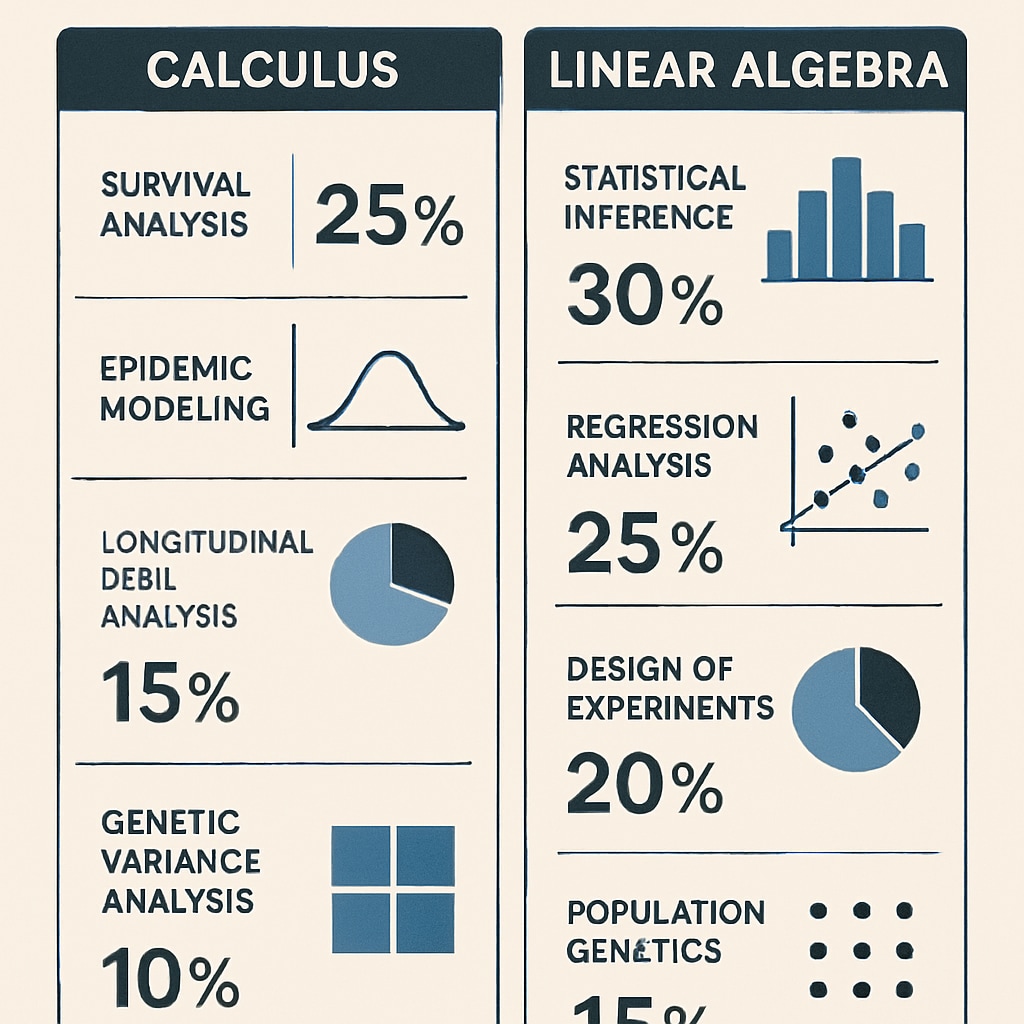For students planning to pursue biostatistics, selecting the right math courses (calculus and linear algebra) presents a crucial academic crossroads. This comprehensive analysis examines how these mathematical foundations support biostatistics applications, helping students make informed curriculum choices.
Core Mathematical Foundations for Biostatistics
Biostatistics relies heavily on two mathematical pillars:
- Calculus (particularly multivariable concepts)
- Matrix algebra and vector spaces
The field of biostatistics increasingly incorporates machine learning techniques, where linear algebra proves indispensable. However, probability theory – built upon calculus – remains equally vital.

Curriculum Priority Analysis
When deciding between these math courses, consider these factors:
- Program requirements: 78% of top biostatistics programs mandate linear algebra
- Research focus: Genomics research favors linear algebra, while epidemiology often uses calculus
- Skill transfer: Linear algebra concepts reappear in advanced statistics courses more frequently
According to statistical theory, matrix operations form the backbone of multivariate analysis – a biostatistics staple.
Implementation Strategies
For optimal preparation:
- Prioritize linear algebra if your program requires it
- Take calculus 2 during summer sessions if possible
- Seek courses emphasizing biological applications
Many universities now offer hybrid courses combining both disciplines specifically for life science students.

Key takeaway: While both math courses prove valuable for biostatistics, linear algebra typically offers more direct applications. However, students should verify their target programs’ specific requirements before deciding.


